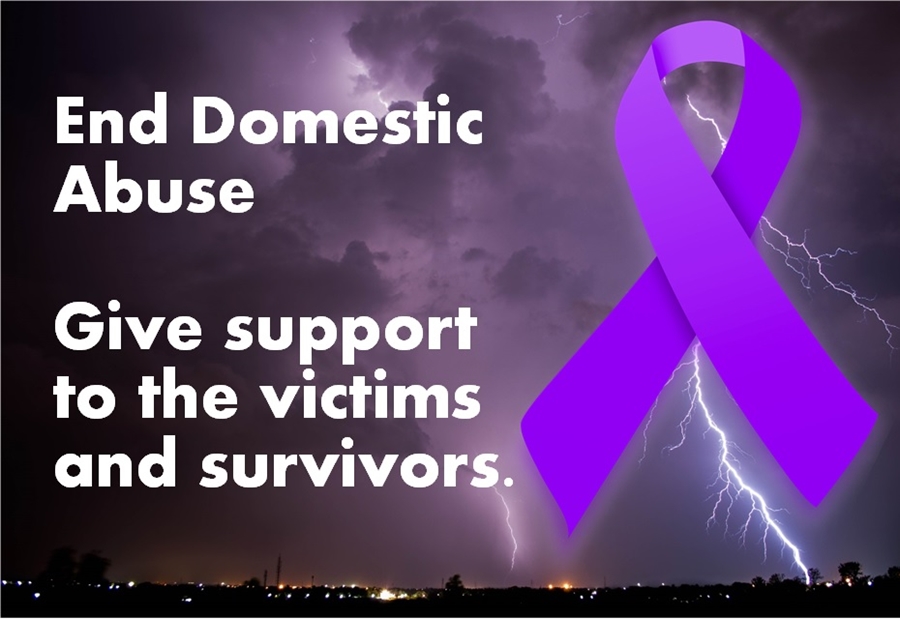As our series of articles from the Campus Sexual and Relationship Violence Center continues throughout October for Domestic Violence Awareness Month, this week's feature focuses on the victim of domestic abuse. Looking from the sidelines, most don't understand a victim's thoughts or situation and wonder why they don't just leave. After all, to the outsider this seems to be the most logical and obvious thing to do. But for the victim of domestic abuse, it is much more complex.
There are many reasons as to why someone may not just walk away and leave. For starters, only the victims know what their abusers are truly capable of doing. This knowledge alone may lead to one feeling trapped in an abusive relationship in fear of what their abuser may do if they try to leave. In fact, the most dangerous time for a domestic abuse victim is during the time that they leave or attempt to leave.
According to the Violence Policy Center, "Sixty-five percent of all murder-suicides involved an intimate partner. Of these, 95 percent were females killed by their intimate partners."
Furthermore, there may be fear with regards to what the abuser may do to children and/or pets that are also part of the household. It is the sheer fear of the threats the abuser may have made or implied to cause life-threatening harm to the victim, children, pets or others that creates an entrapment for many to stay with the abuser.
There are a multitude of other reasons that may also contribute to a person appearing to simply stay within an abusive relationship. Some of these entangling reasons include, but not limited to:
- Fear of losing custody of any children involved or the abuser having unsupervised visitation
- Financial concerns. It is not uncommon for abusers to control all finances and could jeopardize the victim's perceived ability to leave. For others the financial concern of being a single parent may be too great.
- The control over their life from their abuser may render the individual lacking confidence and feeling incapable of providing for themselves.
- Lack of transportation or childcare if they were to work after leaving may inhibit some.
- If married, a religious belief may cause a victim to feel that divorce is not an option.
- A victim may feel that they lack the resources to be able to make on their own. They may not have a job, money tucked away, a bank account or place to stay if they leave the relationship.
- They may be afraid that they (and children if they have any) may end up homeless.
- Victims may not have family members or friends willing to support their decision to walk away.
- Some may encourage them to stay and just work harder to try to work things out.
- A victim may not be aware or be uneducated about the resources available for help.
- Confused emotions over the fact that sometimes things are and have been good, but mixed with bad times, may cause some to stay within an abusive relationship with hopes that things will change.
Rather than judgment from others, victims of domestic abuse need understanding and support. For many, it is not easy to walk away from a relationship for many different reasons. However, help and resources are available.
As part of the effort to raise awareness surrounding domestic and dating violence and to show support for victims and survivors of interpersonal violence, the U of A will observe #PurpleThursday on Thursday, Oct. 20.
The entire campus community is encouraged to join in solidarity with domestic violence victims and survivors by wearing shades of purple throughout the day and using the hashtag #PurpleThursday on social media.
The SRVC is committed to providing education and victim advocacy services for our campus community. Two nationally credentialed victim advocates are on the SRVC staff. Victim advocacy services for students include individual victim advocacy, individual counseling, survivors support group, legal advocacy clinic, assistance with accessing available resources and referrals. For staff and faculty, the SRVC is happy to make referrals and assist with identifying local resources for services and assistance.
All SRVC advocacy services are confidential and available at no cost. For more information or to make an appointment to speak with a victim advocate, please call the SRVC at 479-575-4000.
Contacts
Scott Flanagin, executive director for communications
Division of Student Affairs
479-575-6785, sflanagi@uark.edu
